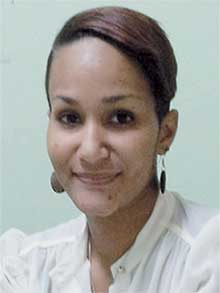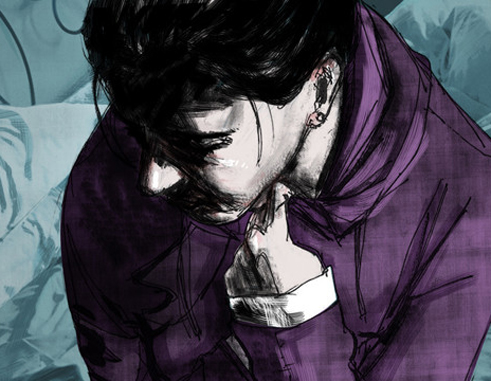
Over the last few months, we have been using the book The Courage to Heal: A Guide for Women Survivors of Child Sexual Abuse by Ellen Bass & Laura Davis to discuss the various aspects of Sexual Violence. We started out by looking at the topic of trauma, by acknowledging that we are all susceptible to experiencing trauma, that all of us know what it is to try and cope after that trauma. While we all cope differently, the underlying impact trauma has on us is in many ways similar. Trauma changes you, it changes how you see the world and how you react in the aftermath trying to protect yourself, trying to cope. The past 8 articles sought to educate you on the many reactions we have to trauma but also to validate and support in the ways that you may have chosen to cope during your healing journey. Trauma has impacted each of our lives in some way or another over the years. It is important that we understand how we are coping, which coping behaviours are healthy and which ones we need to work on replacing. As we recap what we having covered in the article about “How we cope” please don’t push yourself. Should you feel triggered step away from the article, you can always return to it later.
Survivors of sexual violence suffer in a multitude of ways after being sexually assaulted. They have had their bodies violated, their choices taken from them. Their decisions about what should happen next are often again taken from them. They have gone through a range of emotions including shock, rage, fear, anger, shame, loneliness, guilt, etc. They learn to hate their body. They are unable to look themselves in a mirror and they learn to punish their body and to hurt themselves. They learn to use their body, they learn not to trust, not to reach out for help, and they learn that where crimes of sexual violence are concerned the victim and perpetrator roles are often switched in that the victim is interrogated and shamed for the abuse suffered while the perpetrator’s behaviour is rationalized and excused. The trauma of sexual violence leaves survivors wanting to cut themselves off from the world believing that no one will understand what they have been through during the act or how they are currently suffering. Survivors of sexual violence are told by society that the crime of rape always comes back to what they did to cause it. They are put on trial, they are interrogated, their pasts are dissected all while rapists are shielded. The trauma that is suffered initially during the attack is greatly compounded by the comments and behaviours of those who should have been there to comfort, support, empathize and help. Should they choose to report, one can only hope that the individual in front of them understands enough to refrain from further victimizing by insinuating that the prevention of this crime was within the grasp of the victim/survivor.
We don’t get to decide what situations will leave a person traumatized, each of us is unique in how a circumstance will affect us. That being said, I would like to think that most people would understand that being sexually violated in any way shape or form would be traumatizing. Trauma isn’t something that disappears after the incident is over. Your memories are now tied to what happened, your sense of smell, of hearing, of sight, of touch, are all linked to the memories of the assault. Then there are triggers, that come without notice when your sense of smell, touch, hearing, sight are reminded of something that occurred during the assault. Triggers can happen at any time in any place leaving you terrified and struggling to cope. Coping is what has helped keep you alive and going after your assault, it has saved you.
The past 8 articles were meant to help you understand that coping comes in different forms for different people at different times. There is no rule book or specific guidelines for coping. You learn to do what helps you, what keeps you going. Try to evaluate the ways in which you cope, which ones are positive and healthy and which ones need replacing. Evaluate them to ensure that your methods of coping aren’t causing harm to those around you. While we are hurting, it is not an excuse to hurt others. I understand that some of your unhealthy coping mechanisms may be causing you hurt or pain. Acknowledge the unhealthy ones and work on reducing and replacing them with healthier ones. Your path is your own and your coping methods are unique to you and to what you need and to where you are on the healing journey. No one gets to judge you for how you are choosing to protect yourself, to help keep yourself together, to find a way back to a fraction of the person you once were. The thing is, trauma alters you forever. You can’t unsee, unfeel, unhear, untouch the things that occurred when you were sexually violated. It is understandable to want to get back to who you were before you experienced trauma, unfortunately, if we are honest we know that things will never be the same again, we have been changed by the trauma suffered. To recap, in the last 8 articles we discussed coping through denial, minimizing, rationalizing, forgetting, presenting a facade to the world, using humour, dissociating, having multiple personalities, spacing, avoiding people, avoiding intimacy, avoiding sex, being hyper-vigilant, creating chaos, creating a space where one feels safe at any cost, seeking safety through religion, sexual addictions, eating disorders, excessive busyness, being a workaholic, stealing and self-mutilation. Those are some of the most common ways in which survivors of a traumatic experience try to cope. There may be some that we neglected. Feel free to share them and we can discuss them further.
If you are using any of the coping mechanisms we have discussed in this article, understand that it may be your way of trying to regain control, or trying to protect yourself, of trying to channel your pain into a socially acceptable method. There is nothing wrong with you. Understanding how you have been affected will help you feel a bit more in control as you begin to or continue to heal. We are not here to judge any of you for how you chose to cope. We are here to hopefully educate and validate what you are feeling, what you are going through and how you are dealing with it on a daily basis. Each of us copes in the best way we know how. Each of us is doing what we can to get through the day, to get out of bed. “Coping is what you did to survive the trauma of being sexually abused. And it is what you do now to make it through each day.”
Next week we will look at a few more. Should there be a specific topic you would like us to cover please feel free to reach out.
Survivors of sexual assault need a supportive environment to begin the healing process. They need to believe and feel that they are part of a culture that doesn’t support individuals who commit sexual crimes. We have to be the difference we want to see in our country. We have to be willing to start to make change. We, at PROSAF, have acknowledged that violence against women is a problem in St. Lucia and the wider Caribbean. We are here to begin the metamorphosis that is so desperately needed.





![Simón Bolívar - Liberator of the Americas [Photo credit: Venezuelan Embassy]](https://thevoiceslu.com/wp-content/uploads/2025/12/Simon-Bolivar-feat-2-380x250.jpg)



